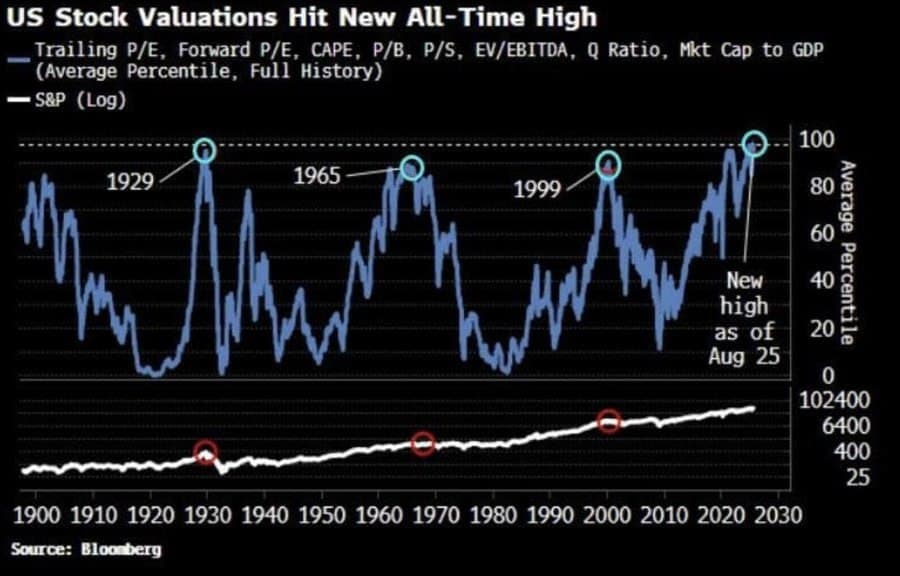The U.S. stock market has reached an unprecedented valuation, surpassing levels seen during the Dot Com bubble and the lead-up to the Great Depression in 1929. As of August 25, 2025, the S&P 500"s price-to-earnings ratio has soared to an all-time high, raising concerns among investors and economists alike.
This surge in valuation comes amid a backdrop of robust corporate earnings and a generally optimistic economic outlook. Analysts point to low interest rates and strong consumer spending as contributing factors to this historic rise. However, the rapid increase has sparked fears of a potential market correction, reminiscent of previous financial crises.
Historically, the stock market has experienced significant fluctuations, with the Dot Com bubble bursting in 2000 and the stock market crash of 1929 leading to the Great Depression. The current valuation raises questions about sustainability and investor sentiment, as many wonder whether the market can maintain its momentum without a substantial economic foundation.
The implications of this valuation extend beyond the stock market. If a correction occurs, it could impact retirement savings and consumer confidence across the nation. Investors are urged to remain vigilant and consider the lessons from past market downturns as they navigate this volatile landscape. For more on related coverage, see our previous reports discussing recent developments in economic and political contexts.







![[Video] Gunfire between Iraqi security forces and Sadr militias in Baghdad](/_next/image?url=%2Fapi%2Fimage%2Fthumbnails%2Fthumbnail-1768343508874-4redb-thumbnail.jpg&w=3840&q=75)
